Hay Festival Querétaro 2022 – Science
Welcome to the Hay Festival Querétaro 2023 programme. The festival will take place from 7 to 10 September. We will have 105 activities with 151 interantional guests from 20 countries, and with Hay Joven, Hay Festivalito, Hay Delegaciones and Talento Editorial events, as well as two activities in Cadereyta.
Event HD1
Carlos Umaña in conversation with Elisa Guerra
Secundaria General Mariano Matamoros, Santa Rosa Jáuregui
Read moreCarlos Umaña (Costa Rica) won the Nobel Peace Prize in 2017 together with the International Campaign to Abolish Nuclear Weapons (ICAN) for calling attention “to the catastrophic humanitarian consequences of any use of nuclear weapons” and for their “ground-breaking efforts to achieve a treaty-based prohibition of such weapons”. He comes to Queretaro, in the country of the Tlatelolco Treaty, to talk about environmentalism, the need to eradicate nuclear arsenals from the world and what it is like to combine work as a scientist and an activist. In conversation with Elisa Guerra.

Event 3
Carlos Umaña in conversation with Alexandra Haas
Nuclear weapons: an existential threat
Teatro de la Ciudad
Read moreCarlos Umaña (Costa Rica) won the Nobel Peace Prize in 2017 together with the International Campaign to Abolish Nuclear Weapons (ICAN) for calling attention “to the catastrophic humanitarian consequences of any use of nuclear weapons” and for their “ground-breaking efforts to achieve a treaty-based prohibition of such weapons”. At this event in the country of the Tlatelolco Treaty, which bans nuclear arms in Latin America, Umaña will to talk about environmentalism, the need to eradicate nuclear arsenals from the world and his own work as a scientist and an activist. In conversation with Alexandra Haas.
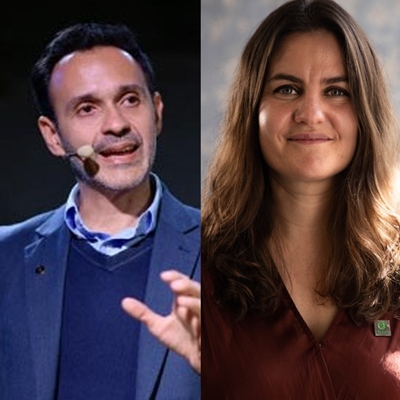
Event 14
Leontxo García in conversation with Jan Martínez Ahrens
El País América event
Teatro de la Ciudad
Read moreLeontxo García (Spain) has been speaking and writing for 40 years about chess and its fascinating links with different fields of knowledge. At this event with Jan Martínez Ahrens, the author will share some views on this activity, which in recent years has enjoyed great success among Internet users. He will talk about its positive effects on the mental and emotional development of children, and its benefits in terms of the prevention of Alzheimer’s, and even the role that chess players have had in the struggles for power among the different geopolitical blocs over the course of history.
Organised together with El País América
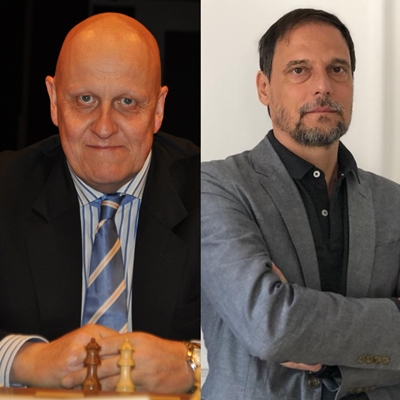
Event 20
Eva Piquer and María Ptqk in conversation with Cristina Fuentes La Roche
Online culture
Museo de la Ciudad (Espacio Hay Festival)
Read moreWe talk about literature, literary production in non-traditional formats, and the intersections of art and writing, on how to narrate artistic experience through words, and also via cultural management projects. With Eva Piquer (Catalonia, Spain), the author of 13 books, former Literary Manager at the Thassalia publishing house and currently the Editor of the cultural magazine Catorze; and María Ptqk (Spain), cultural researcher and art curator with a doctorate in Artistic Research, who specialises in the ecological and the technoscientific, with a post-cultural perspective. In conversation with Cristina Fuentes La Roche, the festival director.
With the support of the Institut Ramon Llull

Event 24
Carissa Véliz in conversation with Eliezer Budasoff
Privacy is power
Teatro de la Ciudad
Read moreWe are constantly handing over our data to companies, websites, via social media, thinking that this will help us in our everyday business… but will it really? Carissa Véliz, lecturer in Philosophy at the Institute for Ethics in AI, and a tutorial fellow at Hertford College, University of Oxford, is the author of the book Privacy is Power. Why and How You Should Take Back Control of Your Data. This is an essential text for understanding one of the most critical problems of the information age: the loss of privacy. In conversation with Eliezer Budasoff.
Sponsored by SURA with the support of the British Council
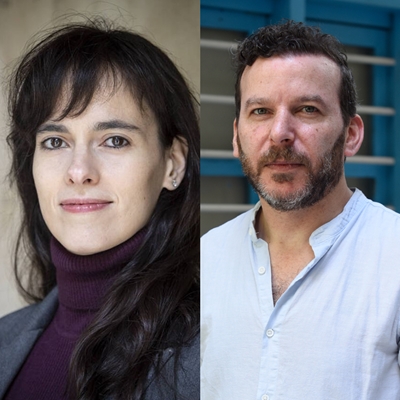
Event 29
Serge Haroche in conversation with Carlos Serrano
Cineteca Rosalío Solano - Escenario Gales / Llwyfan Cymru
Read moreHow has the role of light in understanding the universe changed, and how is it still changing? In 2012, Serge Haroche (France) was awarded the Nobel Prize for Physics, together with David J. Wineland, for his innovative work in the field of quantum optics. Their discoveries make use of the properties of light particles to create new technologies, such as ultrafast quantum computers. With The Science of Light: From Galileo’s Telescope to Quantum Physics, this Nobel laureate offers a revealing narrative about what we now know about light, from relativity theory to quantum physics, about how we have learned it and how this knowledge has led to many inventions that have changed our lives. Coinciding with the celebration of a centenary of quantum physics, Haroche will talk to the BBC journalist Carlos Serrano about the history and current state of knowledge regarding one of physics’ most exciting and important phenomena: light.
Simultaneous interpretation from English to Spanish available
Sponsored by DOW
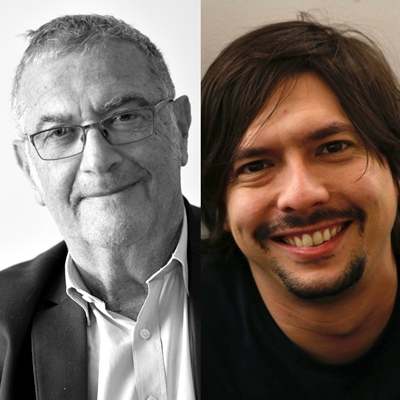
Event 33
Ha-Joon Chang, Thomas Porcher and Carissa Véliz in conversation with Eduardo Rabasa
Democracy in the technological era
Cineteca Rosalío Solano - Escenario Gales / Llwyfan Cymru
Read moreIn recent years, we have seen how profound technological changes have had important political consequences, not always aligned with the values of democratic societies, something that might lead to the question of whether technology represents a threat rather than a force for good. Three experts will talk about matters linked to democratic security in the context of dizzying technological change: Ha-Joon Chang (South Korea), who lectures in Economics at Cambridge and writer of several books including the recent Economics: The User’s Guide; Thomas Porcher (France), economist and author of Traité d’économie hérétique; and Carissa Véliz (United Kingdom), lecturer in Philosophy at the Institute for Ethics in AI and author of the book Privacy is Power. In conversation with Eduardo Rabasa.
Simultaneous interpretation from English to Spanish available
With the support of the British Council, the Institut Français and the Embassy of France in Mexico

Event E2
Leontxo García
The educational power of chess
Casa de la Cultura, Cadereyta
Read moreThe Spaniard Leontxo García works in educational chess and has experience in over 30 countries. He gives lectures on the educational, social and therapeutic applications of chess (particularly its power to combat aging of the brain and Alzheimer’s), as well as its history and famous champions (having met all of them since Botvínik). Principal Councillor for Educational Chess of the World Chess Federation (FIDE, 199 countries), he has also been a journalist since 1983. He offers us a fascinating lecture on the educational power of chess, especially for young children, establishing links with the most common school subjects.

Event 54
Lecture by Antonio Lazcano
Vaccinations and pathogens: the story of a scientific triumph
Cineteca Rosalío Solano - Escenario Gales / Llwyfan Cymru
Read moreAntonio Lazcano (Mexico) is a biologist, a Doctor of Science from UNAM, and expert in the origin and early evolution of life. He has lectured and been a visiting scientist at universities in the Americas and Europe and has received national and international awards. He also has three honorary doctorates and has been a member of the National College since 2014. He is the author of around 150 research papers and numerous books, including Tres ensayos darwinistas (2016), in which he invites the reader to meet one of the great scientists, focussing on three major topics: natural selection, inheritance and the origin of life. At this event, Lazcano will give a lecture about a true watershed in the history of medicine, science and human life: vaccinations.
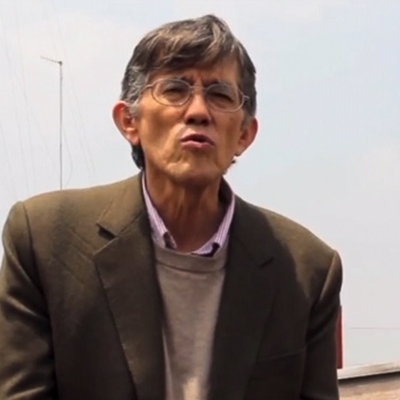
Event HJ20
Serge Haroche in conversation with Alejandro Becerra
Tec de Monterrey, Ciudad de México
Read moreHow has the role of light in understanding the universe changed, and how is it still changing? In 2012, Serge Haroche (France) was awarded the Nobel Prize for Physics, together with David J. Wineland, for his innovative work in the field of quantum optics. Their discoveries make use of the properties of light particles to create new technologies, such as ultrafast quantum computers. With The Science of Light: From Galileo’s Telescope to Quantum Physics, this Nobel laureate offers a revealing narrative about what we now know about light, from relativity theory to quantum physics, about how we have learned it and how this knowledge has led to many inventions that have changed our lives. Coinciding with the celebration of a centenary of quantum physics, Haroche will talk about the history and current state of knowledge regarding one of physics’ most exciting and important phenomena: light. He will talk to Alejandro Becerra.
Event in English

Explore All Genres
- Afrodescendencias
- Art
- Arts & Culture
- Biography
- Children
- Culture
- Dance
- Drawing
- Economics
- Education
- Equality
- Family
- Film
- Food
- Gender
- History
- Human Rights
- Indigenous Cultures
- Journalism
- Language
- Law
- Literature
- Lviv BookForum
- Memoir
- Music
- Nature & Environment
- Performance
- Photography
- Poetry
- Politics
- Science
- Society & Health
- Theatre
Principal Sponsor
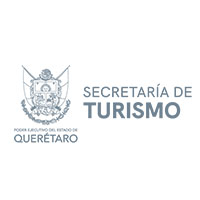

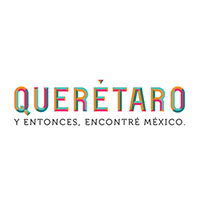
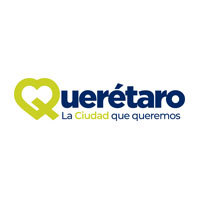
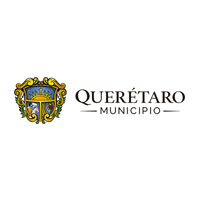
Partner for Latin America

